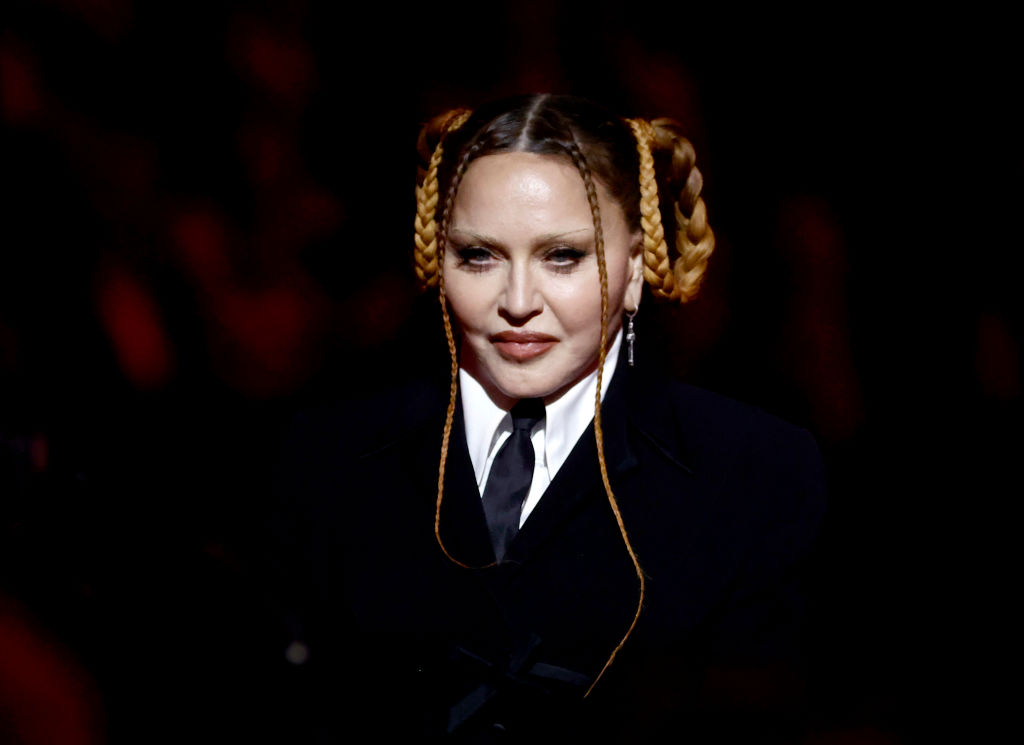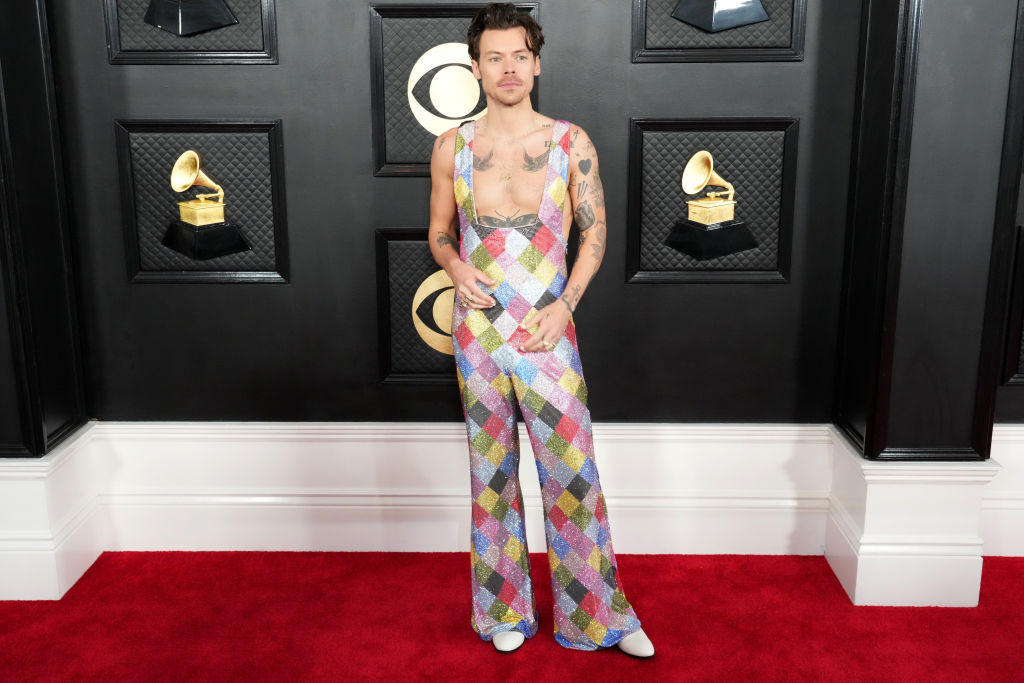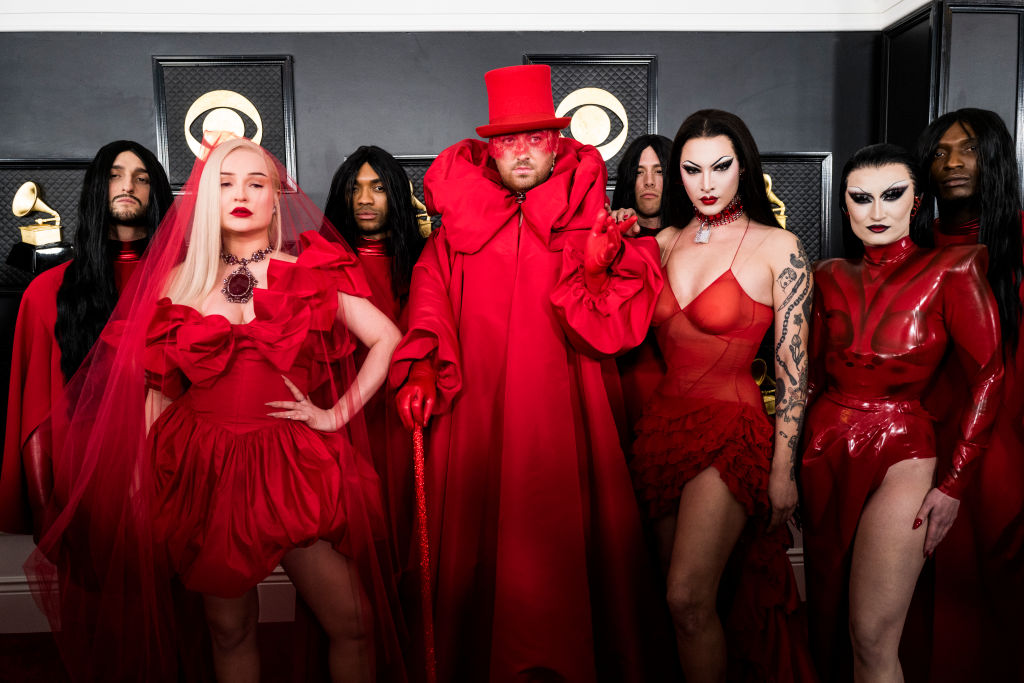A transgender woman and a non-binary person dressed as Satan walk into a bar. That’s not the beginning of a bad joke, but the defining performance of the 65th Grammy awards, held in Los Angeles on Sunday.
You may have seen the clips. The singer Sam Smith wore what appeared to be a terrible Halloween costume: red high heels and a red hat with devil horns. He clomped around the stage performing ‘Unholy’ with Kim Petras, who was in a cage surrounded by flames and whip-wielding dominatrices.

CBS’s broadcast of the ceremony on American television was sponsored by Covid vaccine-maker Pfizer – catnip for conspiracy theorists who think that Covid was some dastardly plan by the Corporate Paedophilic Elite to turn us all into sex slaves. Yet uproar and outrage was of course exactly what Sam Smith and CBS and the Grammys wanted. It’s the only way to make people care about award shows these days, in a world where outrage fuels conversations, conversations fuel content and content fuels clicks.
Of course, musical artists have always pushed boundaries and sought to gain notoriety by upsetting bourgeois norms. The problem now is that gratuitous sexualisation – once a banker when it came offending people – is the bourgeois norm. And so everything takes on a faintly pantomime quality: people pretending to be disturbing so that we the audience can pretend to be disturbed.
That’s the thing about controversy fishing in the internet age – it is so backward looking. Artists don’t engage in youthful, punk rejections of older generations. They pay creepy homage to what came before instead.

That’s why the Grammys chose ‘LGBTQ icon’ Madonna, 34 years on from ‘Like a Prayer’, to introduce Smith’s act. ‘If they call you shocking, scandalous, troublesome, problematic, provocative or dangerous,’ she said on stage at the awards, ‘you are definitely on to something.’ The problem was no one could focus on what Madonna was saying because she looked like she’d been possessed by a plastic alien. Her face had been transformed – filled and moulded and sculpted almost beyond recognition.
Harry Styles, another big winner of the night, had also endeavoured to transform himself. Gone are the days of the clean-cut boyband image which helped Styles and his fellow members of One Direction sell 70 million records. Despite their commercial success, One Direction never got a look-in at such prestigious award shows. But Styles has recognised that to achieve acclaim among his fellow artists he had to become a ‘gender-bending style icon.’

Styles chose to wear a pastel-sequinned jumpsuit cut down to his navel. It was an all too obvious nod to David Bowie’s 1972 Ziggy Stardust look. Some in the fashion world lauded Styles for his fluency in gender fluidity; others accused him of profiting from ‘queer baiting’. Either way, it doesn’t matter. Styles has successfully enriched himself with the currency that stars crave most: attention. He even generated a fatuous debate as to whether he is worthy of comparisons with Bowie.
Meanwhile, Beyoncé set a record by winning her 32nd Grammy, more than anyone else in history. Yet there has been little coverage of this monumental achievement by one of only a handful of female African-American self-made billionaires. People are instead talking about Madonna’s ghoulish transformation, Sam Smith’s ‘Unholy’ dance and Styles’s androgyny.
That’s where we are now with the arts: narcissism eats itself alive and calls itself daring, provocative or transgressive; artists imitate those from the past and call it groundbreaking. The Grammys proved that, these days, the devil doesn’t have the best tunes. He only has the same ones.






Comments